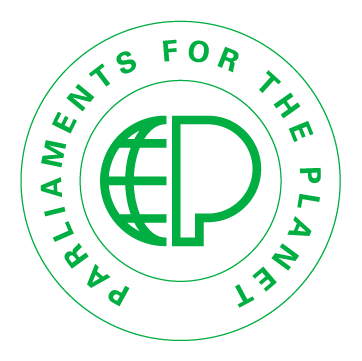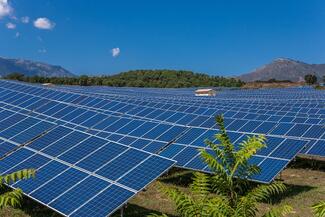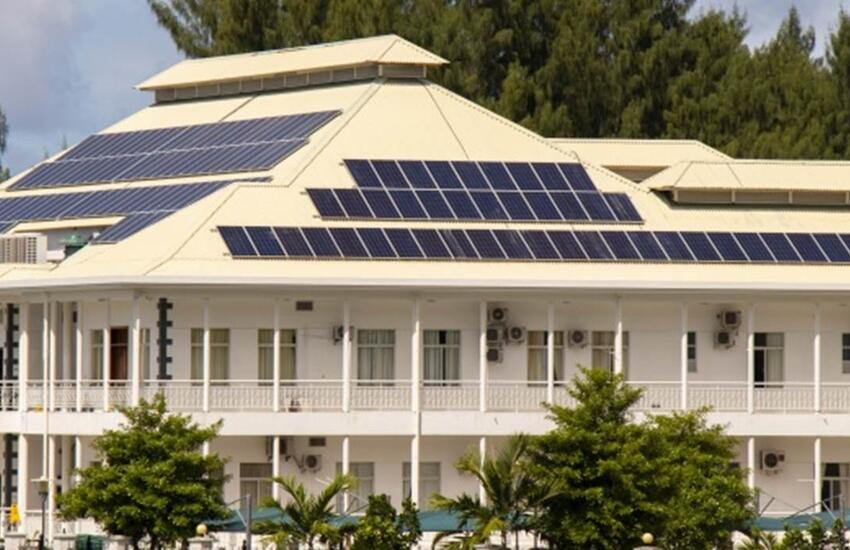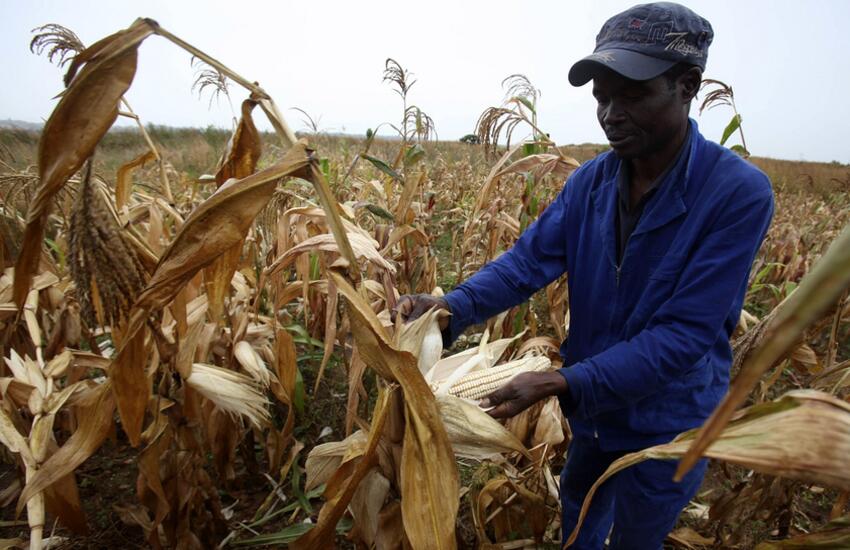The IPCC’s Sixth Assessment Report is sobering reading- and should galvanize action around the world. Parliamentarians are on the frontline.
The Intergovernmental Panel on Climate Change (IPCC) is the United Nations body for assessing the science related to climate change. It gives regular updates on a sliding scale of scenarios for our global habitat, informed by the actions - or inaction - of the world’s governments.
The latest synthesis report, published in February 2023, warns that the window of opportunity to limit global warming to no more than 1.5⁰C is closing fast. Reaching a stage where human-caused emissions are at net zero by 2050 is still only the best-case scenario –yet most experts agree that this will be a minimum to have a chance of allowing the planet to stay below 2⁰C of global warming.
The IPCC is unequivocal: fossil fuels must be made extinct and never revived: existing or planned fossil fuel infrastructure would, by itself, use up our carbon budget for 1.5⁰C or even 2⁰C. So, to stay below 1.5⁰C of warming as called for by the Paris Agreement, we need to slash CO₂ emissions by 45% by 2030.
Taking preventative action now is better than seeking solutions in the future. As the IPCC’s Energy and Climate Intelligence Unit puts it: Avoiding a tonne of CO₂ today will almost always be easier and cheaper than sucking out CO₂ from the atmosphere later this century.
We must prioritize cutting human-caused emissions, along with offsetting future emissions with carbon sequestration measures.
Where to start
Parliamentarians are key players when it comes to climate action. Legislation is a vital engine for driving national action on climate change. Support and leadership for MPs has never been more important.
The IPU’s Parliaments for the Planet campaign is a good starting point. The concept of the campaign is simple. Climate action begins at home. Parliaments and parliamentarians can already take steps to reduce their own carbon footprints – as well as more transformative action through legislation, budgets and scrutiny of measures to implement the Paris Agreement.
To help them, the IPU has identified 10 Actions for Greener Parliaments, which parliamentarians can consider as they work to foster a culture of sustainable change.
Room for optimism
The IPCC’s 6th synthesis report is a warning. But it also offers hope, if action is taken.
It tells us that rapid decarbonization is not just right for the planet; it is cost-effective. The tools for shifting away from fossil fuels already exist and falling costs are making a sound business case for clean energy.
Other good news: climate policies are strengthening. The dual power of government and business is beginning to steer us away from the bleakest future outcomes.
Here are five key takeaways from the latest IPCC report:
1. Cutting carbon: holding governments to account
When the 2015 Paris Agreement was signed at COP21, 195 nations agreed to submit their Nationally Determined Contributions (setting out their climate targets) to the UN every five years. This was a starting point but it takes resolute MPs to push those pledges through to legislation and action.
2. Addressing climate inequity
The world’s top three wealthiest nations are responsible for nearly 43% of greenhouse gases. The 100 poorest nations account for just 2.9%. The power to address this injustice is in the hands of MPs in wealthier nations, which means…
3. Equity through finance
The IPCC warned that financial shortfall is pronounced, especially in developing nations which need between four and eight times more annual investment between now and 2030. It’s not only morally right to invest in nations already at the sharp end of climate change, but essential for all nations. Parliamentarians can catalyze investment and legislate for restorative funding.
4. Letting subsidies subside
The IPCC reports that between 2017 and 2019, around US$ 555 billion in fossil fuel subsidies were handed out. Halting these subsidies could knock 10% off global emissions by 2030.
5. National investment in renewables
China dwarfs all other nations when it comes to investments in renewables. In 2022 alone it invested US$ 546 billion in solar, wind energy, EVs and batteries. The US invested US$ 141 billion. This is a race to the top, with unparalleled urgency.
Parliaments are part of the solution
By pushing for all the above in their own countries, parliamentarians are global influencers, signaling the way ahead.
And many countries are doing just that, like Seychelles, whose parliamentarians took full advantage of IPU’s support and training to create a new national Committee on Climate Change, Islands, Blue Economy and Agriculture. Starting small, by adopting and protecting its neighbouring wetland, the Seychelles National Assembly is now implementing promises made in Glasgow at COP26.
The Seychelles are just one example among many. As part of the IPU Parliaments for the Planet campaign, the IPU is sharing case studies and testimonials of how parliaments and parliamentarians are taking action on the climate emergency.
Tell us what your parliament is doing for the planet.
Find out more about the IPU’s campaign to mobilize parliaments to act on the climate emergency.












